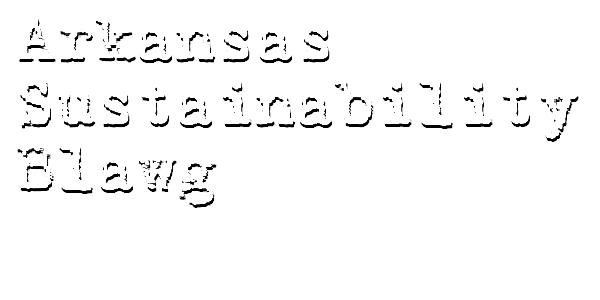Green Leasing. Arkansas is a landlord-friendly state. Evictions are expensive due to the filing fees and because a lawyer is required, but they are also straight-forward proceedings, and the end result is generally clear: material lease violations mean eviction. Leases in green buildings, however, present new and unique issues. Consider the tenant who leases space in a LEED-certified building that is subsequently decertified, or the landlord of a LEED-certified building faced with a tenant who engages in conduct that threatens certification. In these situations, the tradition remedies of possession or money damages may not be appropriate. This means the parties, and their lawyers, will need to do some new thinking, and they will need to do it on the front end when they are drafting the lease.
LEED as the New Building Code. The City of Little Rock’s resolution that all new city buildings be LEED-certified raises interesting issues because it treats the LEED requirements as though they were building codes. But they are not. LEED standards are aspirational and were designed to codify best practices. Treating them as building codes means using them for an unanticipated purpose, likely with unanticipated consequences. What happens if a new building fails the standard? What is the mechanism of enforcement? Do we really mean to give the U.S. Green Building Council power over our local municipal buildings? Is LEED even the right standard? Why not Energy Star? What happens when the city refuses to pay a contractor who, despite best efforts, has failed to deliver a certified building? The LEED standard was not made for this type of duty. Send in the lawyers.
Green Washing and False Green Claims. Green Washing involves misrepresentations (or outright lies) regarding the “green” or “sustainable” characteristics of place, product, process, or service. Envision a granite countertop advertised as “recyclable.” All things being equal, green-conscious consumers will prefer this product over the granite countertop that is not advertised as “recyclable.” And yet, if there are no places where granite countertops can actually be recycled, then the “recyclable” claim is meaningless. Likewise, even if there are recycling opportunities for granite, if the countertop is made from virgin granite, the “recyclable” claim is misleading. These are examples of green washing, and they related directly to claims that I have seen made in 2010 in the Arkansas sustainasphere. In eight days, on December 9, 2010, the comment period for the FTC’s proposed green guidelines related to green claims will end, and the new guidelines will be final and go into effect sometime in 2011. All making green claims should take notice, and be prepared. And consider this: are those who make false green claims violating the Arkansas Deceptive Trade Practices Act?
Will LEED survive? The answer is yes, but it’s going to be an interesting journey because of a class-action lawsuit filed in federal court in New York in October, Gifford v. USGBC. The Gifford suit challenges the very essence of the LEED certification regime, contending that LEED lacks an empherical, scientific basis, does not result in buildings that are more energy efficient, and steers consumers away from energy efficiency certification programs that do achieve greater efficiency. This lawsuit has it all – allegations of fraud and wrongdoing, misrepresentations, anti-competitive and monopolistic behavior, deceptive trade practices, even criminal racketeering. It is sensational, and I predict that as the case progresses at least three things will happen. First, there will be copycat lawsuits. Second, the USGBC will make some interesting changes to the way in which is promotes and manages the LEED brand. And third, the alleged class will not be certified and the case will be dismissed before trial.
LEEDigation and the Arkansas Deceptive Trade Practices Act. To me, the allegations in the Gifford case with the greatest staying power are those that LEED constitutes a deceptive trade practice. Most states, including Arkansas, have a statute that prohibits businesses from engaging in deceptive, unlawful, and unconscionable practices in business, trade, and commerce. (For a classic example, think rolling back an odometer.) To date, there has not been much LEEDigation in Arkansas. But it is coming, and I predict it will come in 2011. Consider the energy efficiency guru who “guarantees” a certain level of LEED certification and then fails to deliver. The injured party will likely be able to swear out a complaint that the guru violated the Arkansas Deceptive Trade Practices Act. Likewise, many in the sustainable blogosphere are predicting that either (a) there is a wave of LEED-decertification coming or (b) that there are numerous buildings that should be decertified but, for a myriad of reasons, will not be. Either way, the end result is LEEDigation, and if there is actual injury a cause of action for violating the Arkansas Deceptive Trade Practices Act is a natural fit.

No comments:
Post a Comment
I welcome your comments. By commenting on this blog, you accept the blog's terms of use. You must use your first and last name when posting, and you must stay on topic.